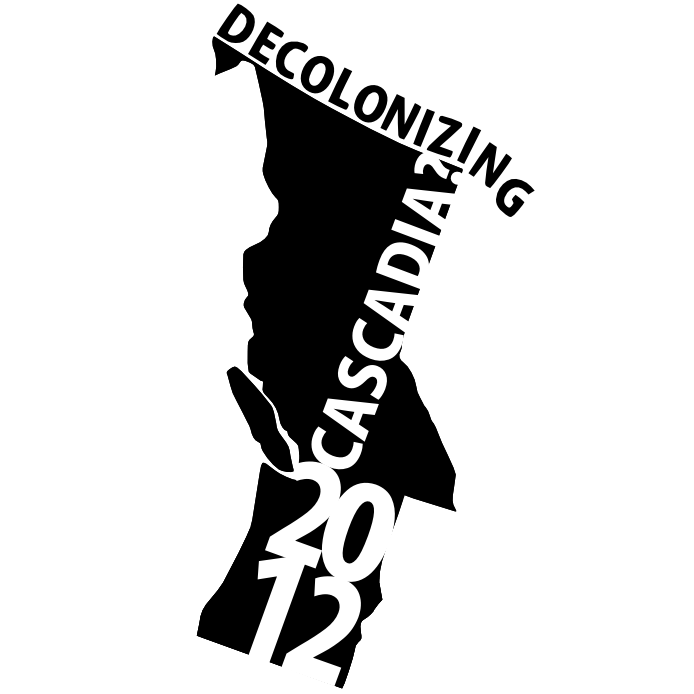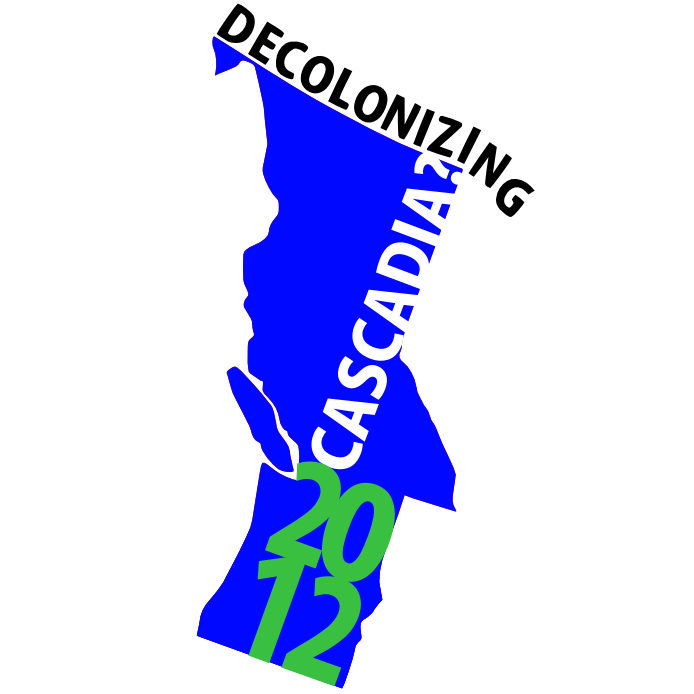
Rethinking Critical Geographies 7th Annual Regional Mini-Conference
University of British Columbia, Vancouver, Canada
November 16th and 17th, 2012
About Decolonization
NOTE: For paper presentations we welcome and encourage a broad range of empirical and theoretical work that need not address decolonization; we hope to engage with a diversity of critical geography scholarship at this conference.
We recognize that our meeting is held on the unceded ancestral and traditional territories of the Coast Salish Peoples. This includes the territories of the Musqueam, Skxwú7mesh-ulh Úxwumixw (pronounced Squamish or Skohomish), Stó:lo & Tsleil-Waututh (pronounced: slay-wa-tooth, aka Burrard) Nations. Following Eve Tuck and K. Wayne Yang (2012), we resist the categorization of ‘decolonization’ only as a metaphor. Though our theme for this mini-conference is in part a call to decolonize our methods, our thinking, our practice, it is important that we remain responsive to the material historical processes that underlie the radical potential of ‘decolonization’. The immediate context of settler colonialism in the ‘Cascadia’ region requires careful and continuous scrutiny.
For us, decolonization involves reimagining, reconceptualizing, and reframing our work. It is about recognizing and building diverse relationships and fulfilling our responsibilities to those relationships, including those among lands, knowledges, humans, non-humans, and institutions. This is a wide net to cast, and purposefully so. Colonial power affects all areas of life and study. This mini-conference seeks to engage with(?) that power at every level. At Decolonizing Cascadia? 2012, we will work towards the inclusion of a diverse range of ‘ways to know,’ including non-academic and academic knowledges from multiple perspectives. Further, we will dedicate a workshop to rethinking the histories and stories made possible and impossible by the regionalism ‘Cascadia’ and to renaming this annual mini-conference. Our speakers will critically engage with (neo)colonial practices in knowledge production, pedagogies, academic institutions, and regionalisms.
As a reminder to those submitting abstracts, the decolonization theme is more about conference structure than content. Following previous Cascadia mini-conferences, our emphasis is on unsettling the ‘traditional’ conference structure. We welcome a wide range of critical, spatially-oriented scholarship. Submissions need not explicitly engage with questions of decolonization.
Reference
Tuck, Eve & K. Wayne Yang. 2012. Decolonization is not a metaphor. Decolonization: Indigeneity, Education & Society 1(1): 1-40.

About the logo
In the process of designing our logo, we wanted to draw attention to Cascadia as a region while also questioning the validity of its traditional representation. We include the outlines of the legal boundaries of the states of British Columbia, Washington, and Oregon not to give weight to the colonial history of violence that created those borders, but to question them. The interior borders between states and nations have been dissolved and 'Decolonizing' has been written across the landscape as a hopeful sign of positive change. However, the external borders of the states remain as acknowledgements to the physical demarcation of the border between land and sea and the sizable political forces working against decolonization. The color scheme plays off the use of blue, green, and white in the unofficial flag of the Cascadia independence movement, the Doug Flag, by appropriating them for a different cause.
Logo designed by Sam Walker.
Cascadia map modified from Cascadianow's map on Wikimedia Commons, available here.
Modified and distributed under a Creative Commons Attribution-ShareAlike 3.0 Unported (CC BY-SA 3.0) License.
Contact us